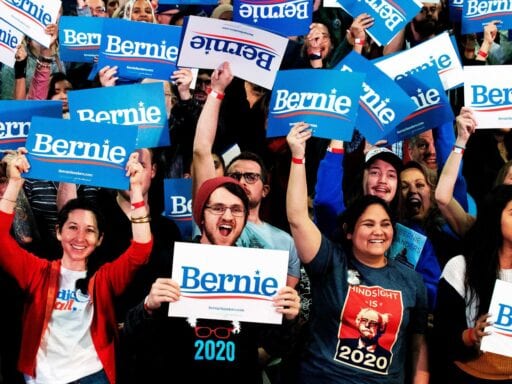After winning Colorado decisively in 2016, Sanders has won it again.
Sen. Bernie Sanders (I-VT) has won the Colorado primary, sweeping a state he won handily in 2016.
Sanders has been the heavy favorite to win Colorado for months. He beat Hillary Clinton by 19 points in the state’s 2016 caucuses. This year, Colorado switched to a primary system, opening up accessibility for unaffiliated voters to cast their ballots as well.
But one big thing that didn’t change was Sanders’s 2016 base of support.
“He’s surging with the young voter, and that does give him an advantage,” said Colorado attorney and former Democratic strategist Michael Dino. “He never lost that young voter; they’ve gotten a little older and they’ve stuck with him.”
There wasn’t a lot of polling leading up to the primary, but the few polls there were showed Sanders with a healthy lead in the race for Colorado’s 67 delegates.
A recent poll by the progressive firm Data for Progress found Sanders ahead of his closest challenger by 11 points; he led at 32 percent, Sen. Elizabeth Warren (D-MA) was at 21 percent, and former Vice President Joe Biden was at 18 percent.
The Republican polling firm Magellan also recently released a poll showing Sanders at 27 percent in Colorado, followed by Warren at 15 percent and former South Bend, Indiana, Mayor Pete Buttigieg, who has since dropped out, at 12 percent. Former New York City Mayor Mike Bloomberg and Biden were both polling at 11 percent.
“Bernie’s looming over everything,” Magellan Strategies pollster Ryan Winger told the local outlet the Colorado Sun in late February. “The takeaway is Bernie leads among most voting subgroups.”
The poll showed Sanders doing well in almost every subcategory considering age and ideology. He led the pack among both registered Democrats and unaffiliated voters, had a wide lead among Colorado’s self-described “liberal” voters, and was competitive with Bloomberg and Biden for voters who describe themselves as “moderate.”
Sanders’s campaign was hoping his strong performance with Latino voters in Nevada would be replicated in Colorado’s Latino population. About 16 percent of Colorado’s voting-eligible population is Latino, per the Pew Research Center. Latino voters skew younger, which makes them a natural fit with Sanders’s younger, more progressive supporters. Indeed, 41 percent of voting-eligible Latinos in Colorado are millennials.
Sanders has drawn large, enthusiastic crowds in the state; more than 10,000 turned out in Denver in September and more than 11,000 did on February 16.
“Don’t tell anybody, but I think we’re gonna win here in Colorado!” Sanders told supporters a few days after the New Hampshire primary on February 11. He just made that a reality.
Author: Ella Nilsen
Read More



